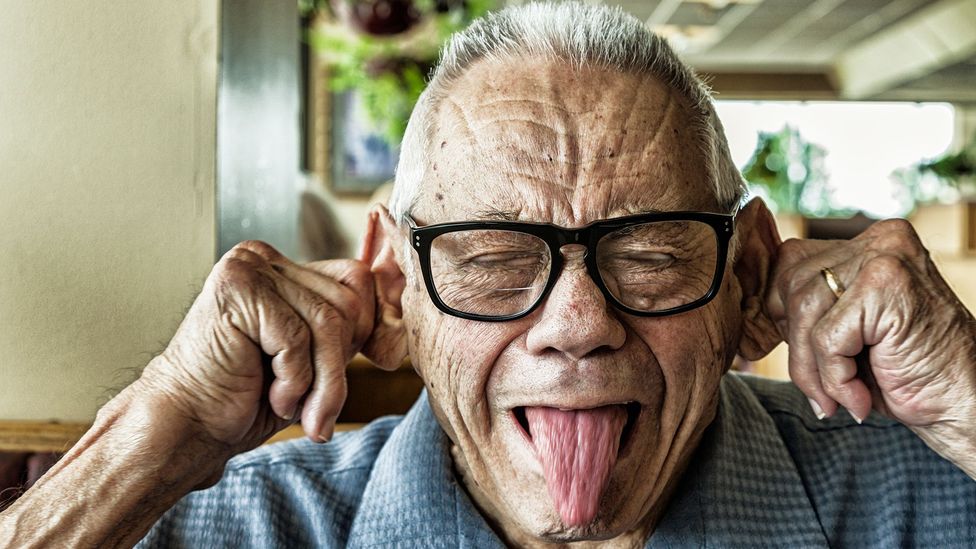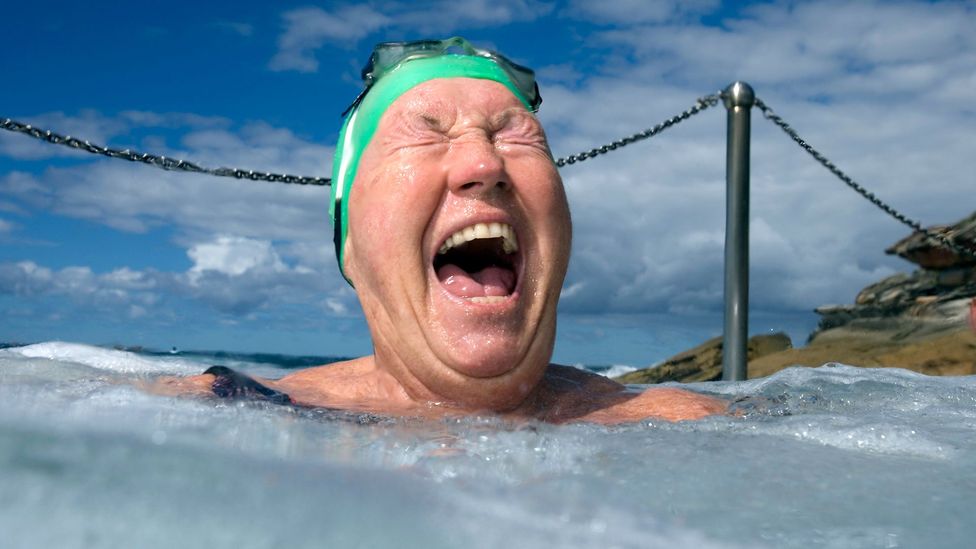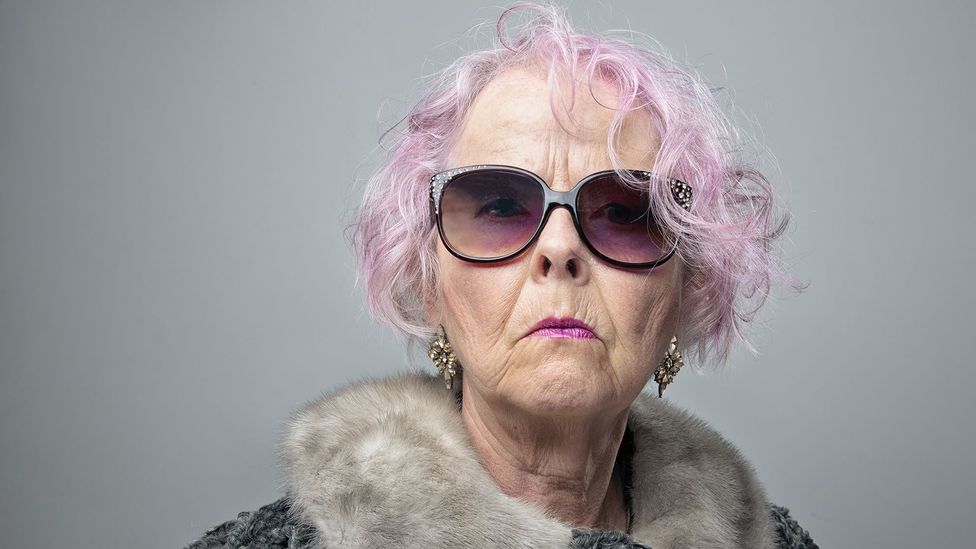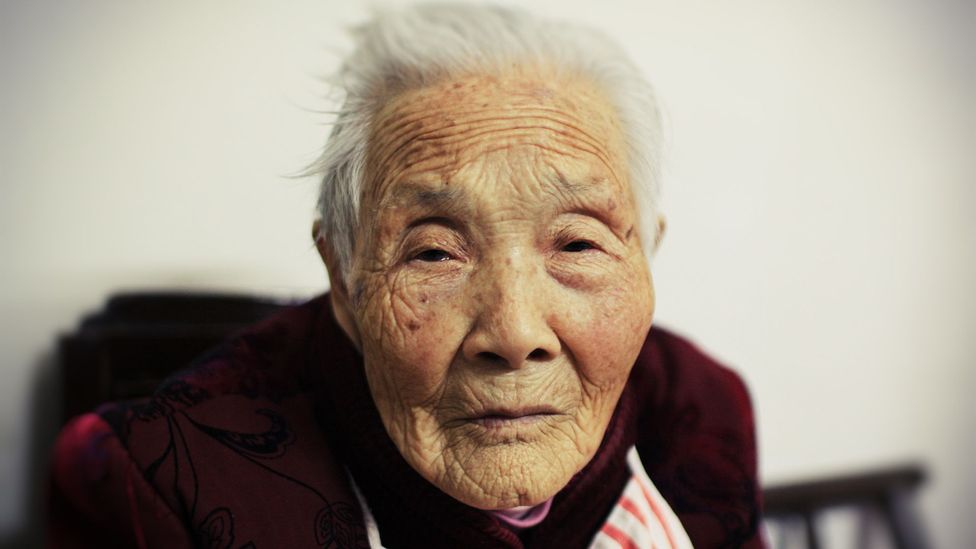Can You Get Age Spots in Your 30s
How your personality changes as you age
(Image credit:
Getty Images
)

Our personalities were long thought to be fixed by the time we reach our 30s, but the latest research suggests they change throughout our lives – and bring some surprising benefits.

"Mr President, I want to raise an issue that I remember has been lurking out there for ii or iii weeks and cast it specifically in national security terms…" said the journalist Henry Trewhitt, as he locked President Ronald Reagan with a steady, serious gaze.
It was October 1984 and Reagan was on the debating circuit, battling to remain in office for a second term. He had already performed poorly against his chief rival a few weeks earlier. Now there were whispers that, at 73 years old, he was simply besides old for the job.
After all, at the time, Reagan was already the oldest U.s. President in history. His predecessor had gone for days without sleep during the Cuban missile crisis. Trewhitt wanted to know: did Regan have whatever doubts that he could role in such circumstances?
You might likewise like:
● The hobby that helps you alive to 100
● Could eating carbs help us alive longer
● Why yous are just as old as you feel
"Not at all, Mr Trehwitt," replied Reagan, belongings back a grin. "And I want you to know that also I will non make age an issue of this campaign – I am non going to exploit, for political purposes, my opponent's youth and inexperience." His response was met with raucous laughter and applause – and preceded a landslide victory in the election.

Ronald Regan was the oldest US President in history when he ran for a 2d term in 1984 (Credit: Getty Images)
Reagan's quip, however, held more truth than he knew. He didn't but have feel on his side, he would also have had a "mature personality".
Nosotros're all familiar with the physical transformation that ageing brings: the skin loses its elasticity, the gums recede, our noses grow, hairs sprout up in peculiar places – while also disappearing entirely from others – and those precious inches of pinnacle to which nosotros cling beginning to slink away.
Now, afterwards decades of inquiry into the effects of ageing, scientists are uncovering another, more mysterious alter.
"The conclusion is exactly this: that we are not the aforementioned person for the whole of our life," says René Mõttus, a psychologist from the University of Edinburgh.
About of united states would like to recall of our personalities as relatively stable throughout our lives. Only enquiry suggests this is not the case. Our traits are e'er shifting, and by the time we're in our 70s and 80s, we've undergone a significant transformation. And while we're used to couching ageing in terms of deterioration and pass up, the gradual modification of our personalities has some surprising upsides.
Nosotros become more conscientious and amusing, and less neurotic. The levels of the "Nighttime Triad" personality traits, Machiavellianism, narcissism, and psychopathy also tend to get downwardly – and with them, our risk of hating behaviours such as criminal offence and substance corruption.
Research has shown that nosotros develop into more donating and trusting individuals. Our willpower increases and we develop a amend humor. Finally, the elderly take more than control over their emotions. Information technology's arguably a winning combination – and i which suggests that the stereotype of older people as grumpy and curmudgeonly needs some revision.
Far from being stock-still in babyhood, or effectually the age of xxx – as experts thought for years – it seems that our personalities are fluid and malleable. "People go nicer and more socially adjusted," says Mõttus. "They're increasingly able to balance their own expectations of life with societal demands."

While our personalities are constantly changing, they do then relative to those around us (Credit: Getty Images)
Psychologists phone call the process of change that occurs equally nosotros age "personality maturation". It's a gradual, ephemeral alter that begins in our teenage years and continues into at least our eighth decade on the planet. Intriguingly, it seems to be universal: the trend is seen across all human cultures, from Guatemala to India.
"Mostly it's controversial to put value judgments on these personality changes," says Rodica Damian, a social psychologist at the University of Houston. "Merely at the same time nosotros do have prove that they're benign." For instance, low emotional stability has been linked to mental health problems, higher mortality rates, and divorce. Meanwhile, she explains that the partner of someone with high conscientiousness will probably be happier, because they're more than probable to do dishes on time, and less likely to cheat on their partner.
It would exist reasonable to think that this continual process of modify would make the concept of personality fairly meaningless. But that's not entirely true. That's because there are two aspects to personality change: average changes, and relative changes. It turns out that, while our personalities shift in a certain direction as nosotros age, what we're similar relative to other people in the same historic period grouping tends to remain fairly stable.
For example, a person's level of neuroticism is likely to get downwardly overall, but the most neurotic 11-year-olds are mostly still the most neurotic 81-yr-olds. These rankings are our well-nigh enduring characteristics, and distinguish us from everyone else.
"There is a core of who we are in the sense that we do maintain our rankings relative to other people to some extent," says Damian. "Merely relative to ourselves, our personalities are not set in stone – we can change."
How do these personality changes develop? "This is the large debate in the field," says Mõttus.
Considering personality maturation is universal, some scientists think that far from being an adventitious side-effect of having had longer to learn the rules, the ways our personalities change might be genetically programmed – perchance even shaped past evolutionary forces.
On the other hand, some retrieve that our personalities are partly forged by genetic factors, then sculpted past social pressures over the course of our lives. For instance, research by Wiebke Bleidorn, a personality psychologist at the University of California, Davis, found that, in cultures where people were expected to grow upward more quickly – get married, get-go working, have developed responsibilities – their personalities tend to mature at a younger age.
"People are just kind of forced to change their behaviour and, over time, to get more responsible. Our personalities change to help usa cope with life's challenges," says Damian.
Merely what happens when we attain very erstwhile age?

Those with college self-control are more probable to be healthy in subsequently life (Credit: Getty Images)
At that place are ii possible ways to study how we change over our lifespan. The first is to have a big group of people of lots of dissimilar ages, then expect to see how their personalities are different. One problem with this strategy is that it is easy to accidentally error generational traits that have been sculpted by the culture of a item time period – such as prudishness or an inexplicable admiration of custard creams and sherry – for changes that occur as you lot age.
The alternative is to accept the same grouping of people and follow them as they abound up.
This is exactly what happened with the Lothian Nascence Cohort – a group of people who had their personality traits and intelligence examined in June 1932 or June 1947, when they were still at school. At the time, they were around eleven years old. Together with colleagues from the Academy of Edinburgh, Mõttus tracked downwardly hundreds of the same people when they were in their 70s or 80s, and gave them 2 more identical tests, several years apart.
"Because we had two dissimilar cohorts of people, and both of them were measured at two occasions, nosotros were able to apply both strategies at in one case," says Mõttus. This was lucky, because the results were remarkably different for the two generations.
While the younger group's personalities remained more or less the aforementioned overall, the older group's personality traits begin to shift, so that on average, they became less open and extraverted, as well as less agreeable and conscientious. The beneficial changes that had been occurring throughout their lives started to opposite.
"I call up this makes sense, because in old age things start happening to people at a faster step," says Mõttus, who points out that these people'south wellness might have been in decline, and they're probable to have started losing friends and relatives. "This has some impact on their active engagement with the globe."
No one has yet looked at whether this tendency would continue into our 100s. Inquiry into Japanese centenarians has found that they tend to score highly for conscientiousness, extraversion, and openness, but they may have had more of these characteristics to begin with – perchance this fifty-fifty contributed to their longevity.

Understanding how certain personality traits are linked to health could help predict risk of disease (Credit: Getty Images)
In fact, our personalities are intrinsically linked to our wellbeing as we age. For example, those with higher cocky-control are more than likely to be healthy in later life, women with college levels of neuroticism are more likely to experience symptoms during the menopause, and a degree of narcissism has been associated with lower rates of loneliness, which itself is a risk cistron for an earlier decease.
In the futurity, understanding how certain traits are linked to our wellness – and how we tin can wait our personalities to evolve throughout our lifespan – might help to predict who is about at risk of certain health problems, and arbitrate.
But in that location's some other do good to the enquiry. "I was just giving a talk in a prison yesterday," says Mõttus. "There was i question they were really interested in: do people change at all? Well the big-picture finding is that yes, they practise." This ways that, as far as he is concerned, there isn't any stiff evidence to propose that people can apply their personality every bit an alibi for their behaviour.
The knowledge that our personalities modify throughout our lives, whether we want them to or non, is useful evidence of how malleable they are. "It's important that we know this," says Damian. "For a long fourth dimension, people idea they didn't. Now nosotros're seeing that our personalities tin can adapt, and this helps us to cope with the challenges that life throws at us."
If nothing else, it gives us all something to look forward to as we get older, and find out who we will become.
--
Join one 1000000 Future fans by liking us on Facebook , or follow us on Twitter or Instagram .
If yous liked this story, sign upwards for the weekly bbc.com features newsletter , chosen "The Essential List". A handpicked selection of stories from BBC Futurity, Culture, Worklife, and Travel, delivered to your inbox every Friday.
Source: https://www.bbc.com/future/article/20200313-how-your-personality-changes-as-you-age
0 Response to "Can You Get Age Spots in Your 30s"
Post a Comment